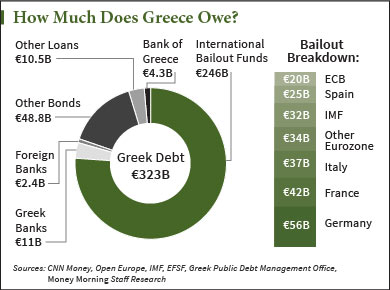Numerous Europeans view Europe as a
one-way street: they appreciate its advantages but are little inclined
to accept common rules. An increasing number throughout the Union are
handing their vote to populist parties – Front National, Syriza, Podemos
– that surf on this Eurosceptic wave and rise up against “foreign”-
imported constraints.
Embroiled with the Greek crisis,
European policymakers will soon have to step back and reflect on the
broader issue of the Eurozone’s future. Before envisaging an exit or, on
the contrary, more sustained integration, it’s right to reflect upon
the consequences of each option.
Oversimplifying, there are three
strategies for the Eurozone: a minimalist approach that would see a
return to national currencies, while keeping Europe perhaps as a free
trade area and retaining a few institutions that have made a real
difference such as common competition laws; the current approach based
on the Maastricht Treaty of 1992 and its fiscal compact update in 2012;
and, finally, the more ambitious version of federalism. My own clear
preference is for the federalist version but I’m not at all convinced
that Europeans are ready to make it work successfully.
Note EU-Digest:
Federalism is probably the only way to go if Europe does not want to
become subservient to the presently ruling superpowers, China, the US,
and even Russia. Populism and nationalism is not the way to go, as it
has always turned sour in Europe's history. True federalism would
certainly require finding another historic shining political star like Mustafa
Kemal Ataturk, who has the ability to get the EU reorganized, and all
the EU member states moving in the same direction. Let's hope we get
blessed soon in finding that "needle in the political haystack" to
rescue the EU out of the iron grip of the Wall Steet dominated financial
community.
Read more: Europe's Future Is Federal » Social Europe


